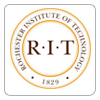The Rochester Institute of Technology, in collaboration with TERC, proposes the Inclusive Exploring Computer Science (I-ECS) curriculum as a set of curricular and tool-based enhancements for visually impaired high school students. I-ECS will be conducted via face-to-face and online support for cohorts of visually impaired high school students. While innovations have resulted in assistive technology for people with disabilities, gaps remain in the level of participation in university-level computing degree programs by the visually impaired. A significant factor is the lack of precollege preparation in courses that promote success in computing degrees. Isolation, the lack of role models and access to resources contribute as well.
The proposed project strives to increase the participation of students with visual impairments through better preparation and support. The overall goals are to increase access to an established curriculum (Exploring Computer Science) and success within the area of computing for students with visual impairments at the high school level. The development of programming tools and online modules will provide access where gaps exist in current software. The project team will assess the degree to which original Exploring Computer Science (ECS) can be made accessible to high school students who are visually impaired. The comparison in student achievement and attitudes about Computer Science will also be conducted between students using the ECS curriculum and those using the I-ECS curriculum in order to evaluate the similarity of the two curricula. By design, the I-ECS project intends to increase participation in computing by individuals with visual impairments at all socioeconomic levels via student and educator support. The project will involve students, parents and educators from around the nation.
The structured approach, building on the foundation of an existing high school computer science curriculum, will enable those with visual impairments to have greater access to the diverse areas of computer science through face-to-face and online resources that foster continuous learning and community, as the means to transition to college degrees in computing. The project components are designed to promote growth by all participants, including parents. The online community will foster greater accommodation of visually impaired students in the computer science classroom. Assessment will provide much needed statistical analysis of both the challenges and successes of students who are visually impaired.




